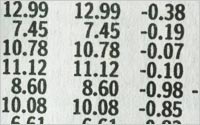 Marketers need to better communicate how
revenue acquisitions goals and results contribute to the companies' bottom- and top-line revenue growth, according to a recent study.
Marketers need to better communicate how
revenue acquisitions goals and results contribute to the companies' bottom- and top-line revenue growth, according to a recent study.
The Forrester Research study commissioned by Marin
Software says 83% of marketing participants believe their online advertising efforts are held accountable to revenue outcomes. Only 6% said their companies are less focused now on driving revenue from
online ads than they were in 2011. And 80% expect revenue targets for online ad campaigns to increase slightly this year.
Although marketers are aware that search contributes to a company's
growth, data analysis needs to improve.
"I can't tell you how many companies have their search marketing team in a little separate silo, or the CMO comes up from the display site of the
business," said Matt Lawson, VP of marketing at Marin. "Search budgets are nearly half of the $98 billion online advertising marketing."
advertisement
advertisement
Forrester expects brands will spend more than $33
billion on search marketing by 2016, up from $24 billion this year.
More accurate ad targeting, followed by improved efficiencies in marketing operations and better campaign measurement, are
the top three benefits of online advertising, marketers believe. Still, Lawson said many marketers sidestep processes, although most survey respondents said they take responsibility for revenue
outcomes.
Ad goals and metrics lack alignment, with nearly two-thirds of marketers admitting they are focused on driving sales, 65%, and leads at 64%. While marketers track conversions, their
top metric is site traffic.